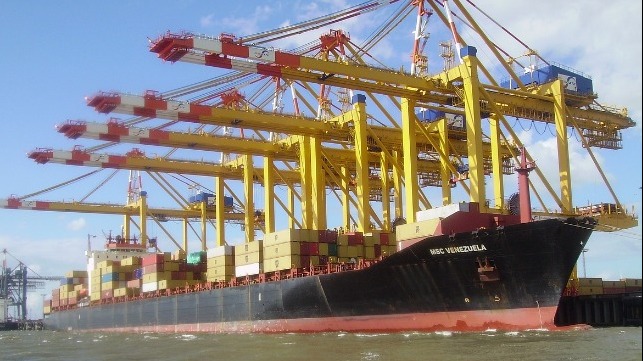Bremen and Bremerhaven Want to Ban Heavy Fuel Oil from Arctic

The German ports Bremen and Bremerhaven have joined a campaign to ban heavy fuel oil from Arctic shipping - along with more than 80 companies, organizations, politicians, NGOs and explorers.
bremenports GmbH & Co. KG operates the twin ports Bremen and Bremerhaven which rank as the fourth busiest container port in Europe, and the world’s 16th biggest.
“bremenports is proud to sign up to the Arctic Commitment. Heavy fuel oil has no place in Arctic shipping. We are calling on other ports to join us on calling on the IMO to enact a ban on its use in Arctic waters,” said Robert Howe, CEO of bremenports GmbH & Co. KG.
“Sustainability is a central element in bremenport’s strategy,” said Howe. “We have implemented numerous projects under the label 'greenports', some of which have won international awards. In order to reduce local air pollution, we will soon bring into service a LNG-powered barge for dredged material. In addition, sustainability and environmental issues are integrated into bremenport’s public outreach.”
Launched at the Arctic Frontiers conference in January 2017 by the Clean Arctic Alliance - a coalition of non-governmental organizations - and expedition cruise ship operator Hurtigruten, the Arctic Commitment aims to protect Arctic communities and ecosystems from the risks posed by the use of heavy fuel oil, and calls on the IMO to ban its use and carriage as marine fuel by Arctic shipping. A heavy fuel oil ban has been in place in Antarctic waters since 2011.
In July 2017, the Clean Arctic Alliance welcomed action being taken by IMO member states to start work to identify measures to mitigate the risks of heavy fuel oil spills during the IMO’s Marine Environment Protection Committee meeting (MEPC71).
“With the IMO’s MEPC72 meeting coming up in April, we are encouraged to see major maritime operators like bremenports supporting the banning of the use and carriage of HFO as ship fuel in Arctic waters,” said Dr. Sian Prior, lead advisor to the Clean Arctic Alliance. “A ban is the simplest and most effective mechanism for mitigating the consequences of a spill and reducing harmful emissions. With many countries – including Germany – now backing a ban on HFO from the Arctic, we hope to see other ports join Bremenports in becoming Arctic Commitment signatories, to help build understanding of the HFO problem and increase the momentum to end its use by Arctic shipping.”
Around 75 percent of marine fuel currently carried in the Arctic is heavy fuel oil; over half by vessels flagged to non-Arctic states. As sea ice melts and opens up Arctic waters further, large non-Arctic state flagged vessels fueled by heavy fuel oil are expected to divert to Arctic waters in search of shorter journey times. Combined with an increase in Arctic state flagged vessels targeting previously non-accessible resources, this will greatly increase the risks of heavy fuel oil spills, says the Clean Arctic Alliance.
